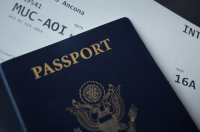Curriculum
In the US your school year usually starts with a visit to guidance counselor and/or with a few hours purusing course catalogue and picking the classes you’ll take that semester. Each major has a specified number of credits (hours) for specified disciplines and as long as you’re sticking to the schedule, you’re good. If you’re a math major, you’re likely to have some humanities credits you’d need to fill, so you can take democracy in ancient civilizations or contemporary dance, or both, if you so desire.
In Russia, you too follow a predetermined course, but unlike in the US, it’s pretty rigid, with very few electives. The exclusion might be foreign languages or sports. You will receive your schedule for the upcoming semester and will follow it with the rest of your group.
Your group is your family
Unlike in the US, everyone admitted to your major in your year will be divided into groups by 10−12 people and unless you drop out, you’re likely to be stuck with them for the duration of the trip. They’re your home away from home. They’ll save a place for you in crowded lecture halls and beer gardens (or not, if you’re not nice). Just about every course you take will involve some form of teamwork with your group mates so it pays to invest in those relationships. Often they become life-long friendships, employment opportunities and project partnerships.

Exams rock
From finals to finals students have a good time, goes a Russian saying. In the US, there’re at least three exams per semester, not including finals. You usually receive a detailed breakdown of how much each exam, course projects, participation and other factors are worth for the final grade. A large number of classes in Russia are pass/fail, which is determined at the final, so cramming the night before is no joke here. Sometimes if you did an excellent job during the semester the instructor might automatically give you a pass without having to take the final. But that’s more of an exclusion than the rule and highly depends of your effort during the class. If you think this is intense, think about oral exams in some courses. That’s when you really get a chance to shine.

Privacy
If in the US you’d need a password to log into your online portal to see you grades, in Russia expect everyone to ask about your grade, to see it taped to the wall in public areas and shared by your instructor with the group. Privacy is a fluid concept here. The upside is that people are generally pretty willing to help.
Photo credit: blog.cengage.com/, usatcollege.files.wordpress.com/, img.sparknotes.com/






